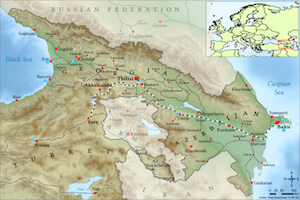Russia and Turkey: Behind the Armenia-Azerbaijan Clashes?
By Avinoam Idan
August 31, 2020, the CACI Analyst
The violent gunfire that erupted between Armenia and Azerbaijan in July appears to have no connection with the ongoing conflict over the Nagorno-Karabakh region. This event took place far from Nagorno-Karabakh, in the Tovuz region. The strategic importance of the Tovuz region is its location on the energy export pipelines route from the Caspian Sea to Turkey and Western markets. It would seem that the players involved here are none other than Russia and Turkey, in active conflict vis-a-vis the war in Libya. The gunfire can be interpreted as a Russian message to Turkey, regarding its energy supply security from the Caspian Sea. If so, this is not the first time Russia has used Armenia to further its interests in the region.
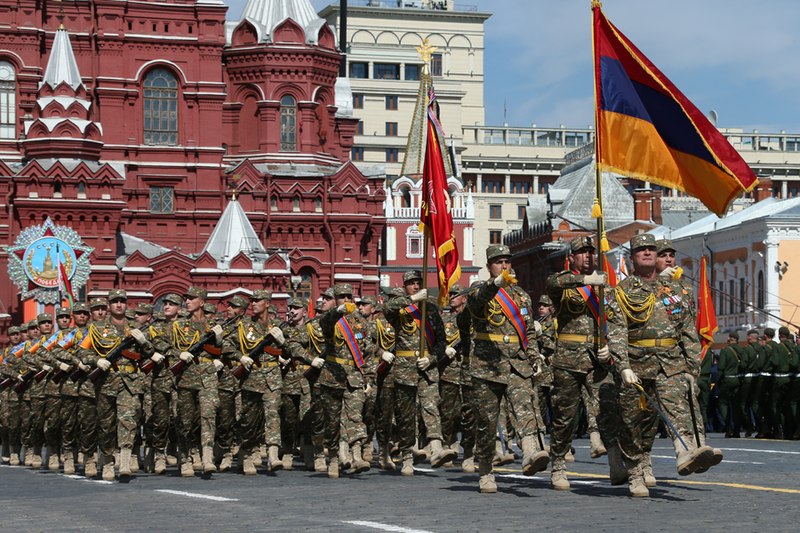
Military Procurements on Armenia's and Azerbaijan's Defense Agendas
By Ilgar Gurbanov
March 27, 2019, the CACI Analyst
In parallel with their peace talks on the Nagorno-Karabakh conflict, Azerbaijan and Armenia seek to diversify and deepen their partnerships with major arms suppliers. By diversifying its arms purchases from several different partners, Azerbaijan seeks to multiply its arsenal and retain a military advantage against Armenia, whose corresponding efforts aim to cement the status quo through military occupation of Azerbaijan’s territories. Both countries aim to maximize the tactical efficiency of their arsenals on the potential battlefield.
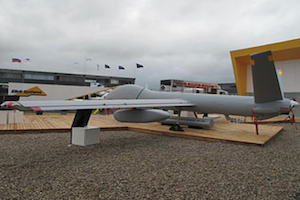
Thinking Big About Caspian Energy
By Stephen Blank
November 29, 2018, the CACI Analyst
The signing of the Caspian convention in August 2018 has opened up exciting new possibilities for getting Central Asian oil and gas to European and global markets. The long-desired Southern Gas Corridor (SGC) from both shores of the Caspian has thus become a possibility. By thinking big, we can use Caspian gas for beneficial economic and political purposes. Whatever route Caspian energy takes to Europe, it must traverse the Caucasus and can be of substantial value in transforming the Eurasian geopolitical scene and agenda. Specifically, those parties who have the most to gain form resolving the Nagorno-Karabakh conflict can now devise a peace program that incorporates the use of energy to help foster an enduring peace between Armenia and Azerbaijan, reduce Russia’s ability to manipulate this conflict, and at the same time enrich them both as well as European consumers.
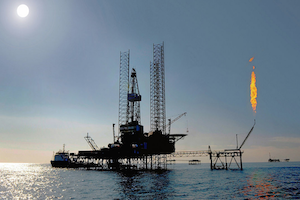
New Southern Gas Corridor Project Will Intensify the Regional Pipeline Race
By Fuad Shahbazov
June 28, 2018, the CACI Analyst
On May 29, Azerbaijan’s President Ilham Aliyev officially inaugurated the first phase of the long-awaited flagship project Southern Gas Corridor (SGC), through which Caspian natural gas from the Shah-Deniz II field will be transported to Europe. The new project consists of several pipeline networks that pass through Georgia and Turkey (via the Trans-Anatolian Pipeline, TANAP) and further through Greece, Albania and Italy (via the Trans-Adriatic Pipeline, TAP). As Shah Deniz Stage 2 is implemented, gas production will increase from 9 to 25 billion cubic meters (bcm) per year.
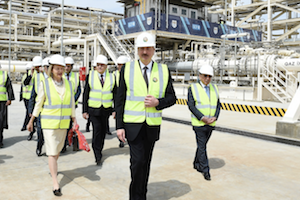
Baku-Tbilisi-Kars Railway to Become Central Asia's Gateway to Europe
By Fuad Shahbazov
December 7, 2017, the CACI Analyst
On October 30, 2017, Azerbaijan’s President Ilham Aliyev, along with Turkey’s President Recep Tayyip Erdogan, Georgia’s Prime-minister Giorgi Kvirikashvili, Kazakhstan’s Prime Minister Bakytzhan Sagintayev, and Uzbekistan’s Prime Minister Abdulla Aripov attended the opening ceremony of the long-delayed Baku-Tbilisi-Kars (BTK) railway. “The opening of the railway is of historic and strategic significance,” Aliyev said at the ceremony in the Caspian port city of Alat, south of Baku, to mark the departure of the first trains. In fact, the opening of the new railway provides an alternative route to existing rail services carrying goods from Asia to Europe.
